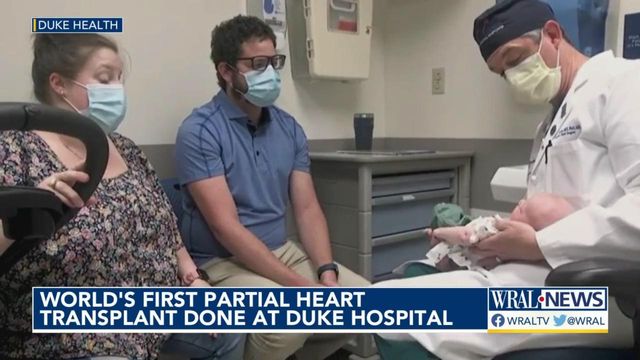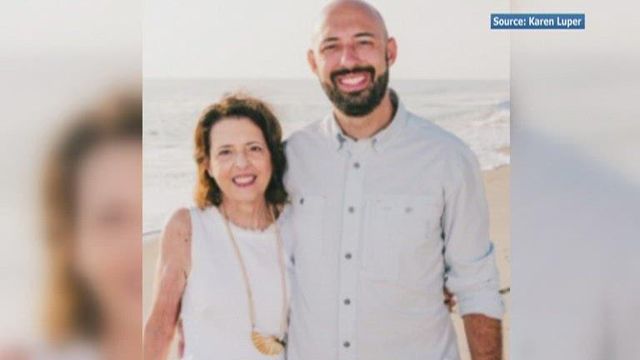Newborn saved with first-of-its-kind heart transplant at Duke
A 17-day-old newborn recently had a first-of-its kind surgery at Duke Health to repair a heart defect.
In April, a team performed what is believed to be the world's first partial heart transplant on Owen Monroe, who was born on April 5 with truncus arteriosus, a condition where the two main heart arteries were fused together. Doctors said Owen's one vessel also had a leaky valve, which meant it was unlikely he could survive the wait for a full heart transplant.
The tissue used in Owen's surgery was from a donor heart that had strong valves but could not be used for a full transplant because of the muscle's condition.
"This would be a heart that wouldn't otherwise be used or available for donation for another child or infant. [Partial heart transplant surgery] removes the possible need for doing a traditional heart transplant ... and it uses a resource in an organ that would otherwise go unused," said Dr. Michael Carboni, a professor at Duke University and Owen's pediatric transplant cardiologist.
In the partial heart transplant, Owen received living arteries and valves from the donor heart, which were fused into Owen's heart. Doctors said the goal of the surgery was to allow the valves to grow with Owen over time.
"This is really one of the most profound developments in pediatric heart surgery in a long, long time, and this will really change the way that children are taken care of in the future," said Dr. Joseph Turek, the chief of pediatric heart surgery at Duke Health.
Typically, doctors said, children with Owen's condition would get two preserved cadaver arteries with valves. But the implanted tissue doesn't grow with the child's own heart, which means children require multiple follow-up open heart surgeries to replace the valves with larger ones — dramatically limiting life expectancy.
Owen's parents, Nick and Taylor, said they hope the success of Owen's surgery changes organ donation and transplantation.
"I hope [Owen] knows how pivotal he was in this ... I hope one day he knows how thankful we are for him allowing us to do this. I know he didn't really have a say, but I think one day he will be grateful for this medical opportunity to forge this new opportunity," said Owen's mother Taylor Monroe.
Since April, doctors said Owen has shown "remarkable growth and improvements."
"He's doing really, really well," said Monroe. "Looking back sometimes, I'm blown away by how well he's done."
"He is a fighter," she said.
Doctors also hope a similar approach could be used to treat common valve replacements in children.
“This innovation amplifies the ways in which we can use the incredible gift of organ donation to save more lives," said Carboni.











